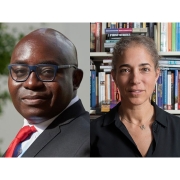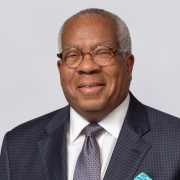SAS Team Discovers Protein Needed for Cell Movement

A new multi-disciplinary study at Penn illuminates a crucial step in the process of cell movement. The protein they examined, Exo70, induces a reshaping of the cell’s plasma membrane, a necessary step in how a cell migrates from one location to another. The findings deepen the understanding of how cells initiate movement, and have implications for conditions dependent on cell migration, including cancer.
The research, published in the journal Developmental Cell, was co-led by graduate students Yuting Zhao and Jianglan Liu, both members of senior author Wei Guo’s lab in the Department of Biology. The work involved collaboration with researchers at Penn’s Perelman School of Medicine and School of Engineering and Applied Science.
Previous research on cell migration had focused on actin, a protein that forms filaments and branches and is known to play a role in a variety of activities, including those that involve remodeling a cell’s shape. But Guo and other scientists believed there had to be other factors aiding the reshaping of cellular membranes. His lab looked to exocytosis, or the organized process by which cells carry proteins to the membrane in vesicles and then release important molecules such as hormones and neurotransmitters to travel elsewhere in the body. A structure made up of several proteins, called the exocyst, helps mediate this process. Last year Guo’s lab published a paper, also with Liu and Zhao as lead authors, showing that Exo70, a component of the exocyst, stimulates actin structural changes at the leading edge of migrating cells.
In the current study, Zhao, Liu, Guo and colleagues wanted to more deeply examine what Exo70 was doing in the cell and how it was doing it. Using electron microscopy, they first found that Exo70 “bends” the membranes to generate high-curvature tubules. In addition, the presence of Exo70 in cells led to the creation of protrusions on the membranes. They also found that Exo70 formed complexes of at least two copies of the protein, known as oliogmers. Exo70 proteins that were mutated so they couldn’t form oligomers were unable to effectively migrate, the researchers discovered, underscoring the importance of the molecule in helping cells make directed movements.
Guo and colleagues are pursuing further studies of Exo70 to consider a possible role for it in the uncontrolled growth and metastasis seen in many forms of cancer.
Three of Penn’s schools, including five different departments, collaborated on this publication.
Additional authors in the School of Arts and Sciences included Changson Yang and Tatyana Svitkina of the Department of Biology and Benjamin R. Capraro and Tobias Baumgart of the Department of Chemistry.
Their research was supported by the National Institutes of Health.
Read the full story here.





